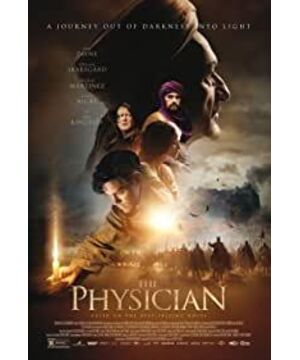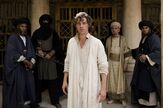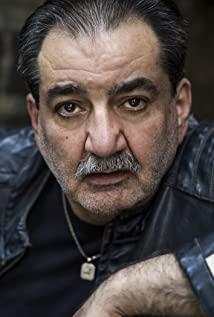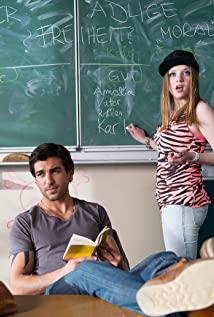The story takes place in medieval Europe, London, England. A sloppy middle-aged man stood by the carriage and shouted at the surrounding with greasy words. He was a barber and was soliciting guests. Of course, haircut is only his sideline, and his profession is to treat people. The so-called seeing a doctor is actually playing a god. They are all messy sideways. What to drink with plant ash and wrap the bird tongue around the neck? It is not so much a medical technique as it is a witchcraft. Can the patient be cured? By luck, if the luck is bad, the blessing of death is normal. It seems to us now that this is simply unbelievable, but at the time, people were accustomed to it. Why is this? We have to start with the era of the movie.
Medieval Europe is like the Chinese countryside at 2:30 in the morning, with no bottom in darkness. After the fall of the Western Roman Empire, some barbaric dynasties ruled here one after another. The science, literature, and philosophy developed by the previous empire were abandoned and burned like rubbish. Religion took over people’s lives. Under the rule of the church, society became barbaric and savage. Ignorance, the streets and alleys of the city are littered with colorful excrement, people are ragged, their faces are dull, and flies and bugs fly around in the dirty air. People have long forgotten that Socrates and Aris have also appeared in this land. A great man like Dodd. At that time, medicine was also ignored. There were no formal hospitals and doctors. The people who saw doctors were all "barbers" who walked the rivers and lakes. They drove a dilapidated carriage through cities and villages to perform some basic treatments.
Back in a dilapidated small house, the protagonist Rob and his younger siblings are sitting around his mother's bed with anxious faces. My mother was very ill, not trauma, but a disease in the body, which is very difficult to treat. Due to religious reasons, dissecting a corpse was a big deal at the time, and no one could understand the exact structure of the human body. Robb knew in his heart that there was little hope for his mother to be cured, but with a trace of luck, he found the barber overnight and begged to save his mother. Although the barber was very reluctant, he still came and was about to watch. Soon, the priest standing next to him spoke. The priest said that this woman's death was God's will, and no one could violate it. The barber was forced by the priest's authority and did not dare to do anything else. Poor Rob, just watched his mother die in front of him.
When his mother died, Robb and his younger siblings immediately lost their support. Before long, the younger brothers and sisters were sold as private property by the priest in the slave market. Originally, the priest wanted to sell Robb together, but the buyer refused because Rob was too strong and the buyer was worried that he would not be able to support him. Robb feels that he has been abandoned by the world, with all the burdens of life on his shoulders, alone, how can he survive in this sinister world in the future? Rob found the barber, hoping to work in his hands. The barber disagreed at first, because he was used to being a jovial man. But Robb refused to give up, and the barber finally agreed.
Robb wandered around with the barber. The barber lived in a wild life, treating others during the day, and wandering in pubs and brothels at night. Robb has always followed him, but he hasn't affected his habits, because Robb pretends to have something more important in his heart, which is the cause of his mother’s death. Robb firmly believes that his mother can actually be cured. This end. Robb wants to learn medical skills and find a way to heal his mother, so that more people will not repeat the tragedy of his mother.
Robb studied earnestly with the barber. The more he learned, the more he felt that the barber’s treatment was simple and rude. A piece of red iron scalded the wound without any anesthesia, and the patient was so painful. The barber didn't care and taught Robb that the more painful the patient, the more respect the profession of barber. Robb hopes that the barber will learn more about human body structure, and if necessary, he can use the corpse of a dead person. When the barber hears that he is approaching an enemy, he quickly motions to him to stop.
However, the barber was planted in a rough treatment of his own. He pulled a man’s teeth. He first poured mead into the man’s mouth with the soil from the mountain, and then pulled the teeth off with pliers. A day later, that poor man 'S man died on the side of the road, I guess it may have died from excessive blood loss. The men’s tribe found the barber and Robb angrily and beat them with sticks. The barber and Robb were beaten so immobile. The tribe set ablaze the firewood spread on the barber and walked away. Robb struggled. He got up and tried to drag the hairdresser out of the fire. The hairdresser was saved from death, but he was still blinded by the fire.
The barber was beaten nearly disabled. Knowing that he had lost the ability to live alone, he lay on the grass on the mountainside, preparing to exile himself. But Robb couldn't bear to see the barber die in the wilderness, because the other party had rescued him when he was in trouble, so Robb began to take care of the hairdresser's daily life, and continued to take the barber to practice medicine.
After a few years, the barber's body gradually recovered and gradually gained vitality. When Rob was seeing a doctor, the barber was there to guide him, and life was slowly returning to normal. Although the barber is blind, he still spends time and drinks and entertains himself in the brothel. Rob has always had a thought in his mind, that is, heal the barber's eyes. One day Robb was chatting with a prostitute. The prostitute said that if he wanted to heal the hairdresser's eyes, he could find a Jew.
Robb was overjoyed when he heard that, and the next day he took the barber to the Jewish settlement to find the relevant doctor. It took a few days for the doctor to cure it. The moment the barber saw the light again, he was almost speechless with excitement. During the past few days of treatment, Rob learned about some of Judaism's etiquette, such as prayers before meals, or circumcision, that is, circumcision. Robb was very grateful to the Jewish doctor and asked where he learned such superb medical skills. The doctor took out a map and told Robb that this picture represents the entire world. He pointed to one place and said it was London, and then pointed to another. A place, said this is Isfahan, Isfahan is a prosperous city, where the best doctors in the world gather, among them the philosopher Ibn Sina is rich in knowledge, wise, and superb medical skills. match.
The doctor told Robb that it would take at least a year to travel from London to Isfahan. He had to go to the south coast of England, then cross the English Channel to France, walk through France and then take a boat along the coast of Africa. Egypt, you will be killed, because from there, you have entered the Muslim world. Arabia and Persia are expelling Christians everywhere, and they are only tolerant to Jews.
However, I can’t help but add that although there are such religious conflicts in the Arab world, the tolerance of different religions by the rulers is much better than in Europe at the same time. The rulers did not force other religions to convert to Islam. There are many reasons. One is that believers of other religions pay more taxes than Muslims. In short, non-Muslims in the Arab world are much luckier than non-Christians in Europe.
The barber was in a good mood and rekindled his confidence in practicing medicine to make money. He hoped to continue cooperating with Robb and share more profits with each other. But at this time Robb did not want to continue his previous life. He yearned for what the Jewish doctor said. The great city of Isfahan wants to learn from the great physician Ibn Sina. He expressed his thoughts to the barber. Although the barber wanted to stay, he finally understood Robb. He gave Robb a sum of money and took him to Dover on the south coast of the United Kingdom. On the white cliff by the sea, the barber and Robboy bid farewell reluctantly.
At that time, the Arab world was well-developed in business, especially the Jews, who had talented business acumen and traveled in groups to and from the three continents of Asia, Africa and Europe all the year round. Robb tried his best to find them and persuade them to let him go. The Jews agreed, but the treatment was not good. He was arranged to live in the bottom of the cargo box, alone with the darkness.
After drifting on the sea for a long time, the cargo ship came to a certain port. Robb climbed up on the splint and opened his eyes that hadn’t seen the sun for a long time. He saw a small city ahead. Farther away, there was nothing to see. The desert to the end. The crew told Robb that the caravan to Isfahan would leave a few days later.
Robb set off with the caravan, almost full of desolate golden deserts along the way. The caravan told me that it would take at least two months to go to Isfahan. At night, everyone found a place to camp. Under the charming moonlight, everyone sat around the bonfire and chatted happily. Rob found that a tent not far away was very bright under the light of candles, and there was a woman’s shadow on the tent. The entourage told him that the woman was named Rebecca and was to be taken to Isfahan. Rebecca never communicated with people in the caravan. She liked to read alone in the dead of night. Later Robb learned that Rebecca was a bride bought by a rich man in southern Persia. At that time, the slave trade in the Arab world was developed, which was reflected in the movies.
Robb, who grew up in the UK, had a deep understanding of sectarian contradictions. He knew that he had to pretend to be a Jew to survive. In addition to the daily etiquette, he had to have a stricter disguise. Robb made a bold move. He bought a knife, took advantage of no one around, endured the pain and cut off the foreskin that had been with him for decades, because the Jews had to be circumcised since they were young. Robb also gave himself a Jewish name, Jesse, and we will call him Jesse later on.
The caravan moved slowly under the scorching sun, and the sound of rumbling horseshoes came from a distance. Everyone was immediately alert. Someone boarded a high place and saw a group of cavalry blowing up smoke and dust and driving into the distance. The leader showed horror and murmured to himself, "It is a Seljuk, a knight from the north, wherever they went, only blood and corpses were left." When the companions heard it, they all shuddered.
Here I would like to add a bit of historical background. At the end of the Sui Dynasty and the beginning of the Tang Dynasty, Turkic people repeatedly committed crimes, and the people were unbearable. Tang Taizong Li Shimin, a talented and broad-minded Tang Taizong, first endured the humiliation, and then accumulated a lot of money, and finally drove the Turkic people out of the frontier. After being driven away, the Turks came to Central Asia and began frequent invasions of the crumbling Arab empire. The Seljuks in the movie are descendants of the Turkic people.
The caravan walked to a castle and opened the gate. There was silence inside, and a large number of dead people's corpses appeared in front of them. They knew that the Seljuks must have been burning and looting again. Everyone couldn't bear it, sighing and preparing to leave, when a faint cry for help came from nearby. Robb followed the voice and found a little girl alive in the dead pile. Robb felt compassion and approached carefully. But the leader of the caravan poured cold water, "There is no more room for others to live in," the leader said. The leader travels north and south all the year round, and has been used to strong winds and waves, and his heart has long been honed as hard as a rock. He knew that walking in the desert was dangerous, and he had to guard against the haunting Seljuks at all times, and he could no longer afford other "idle people."
At this moment, Rebecca spoke, "She can live in my room". "It's none of your business" The leader gave her a cold look. "I'll take care of this child." At this time, Rebecca showed an unusually determined side. No one else had expected that Rebecca, who had always been silent, was so determined on this matter. After all, everyone just wanted to send her safely to get the reward, and didn't want to make troubles, so she didn't say anything. The woman gently carried the child into the car and cared for her like a mother. At that moment, Jesse had some subtle feelings for Rebecca, maybe it was appreciation, maybe it was liking, in short, there was something happening quietly. Jesse was willing to be with Rebecca, and on the way, Jesse chatted with her happily. Jesse told Rebecca that he was from England and was a barber who was responsible for treating others.
The little girl closely connected Jesse and Rebecca. The little girl was dying of colds along the way. Rebecca, who was in charge of taking care of her, was very worried. Once the little girl was hot and very dangerous. Rebecca approached Jesse and asked how to solve it. Relying on past experience, Jesse brought a bottle of water to cool down the girl, and the little girl was slowly out of danger.
Just when we thought that something was going to happen to Jesse and Rebecca, a huge sandstorm hit, the dust all over the sky was flying like a devil, mixed with the whistling wind, the caravan was blown up and down, Jesse and His was blown away.
When Jesse woke up, he only saw a few carriages and a few corpses lying scattered around him. Jesse stood up hard, calling Rebecca's name loudly, but no one responded. Jesse's mind was blank, and a huge sadness writhed in her mind. Jesse knelt down and prayed, hoping that Rebecca would survive. But he didn't realize that there was another person beside him who did not die. Although he was dying, he still heard Jesse's Christian prayers. "Who are you?" the person next to him asked with difficulty. After asking, he dropped his head and died.
After a long time wandering on the edge of death, Jesse finally walked out of the desert and saw the great city of Isfahan.
Isfahan is magnificent at night, bunches of fireworks rise above the city, and people gather in the street to indulge in singing and dancing. As one of the oldest cities in Iran, Isfahan is the only way to travel north and south, and its prosperity goes without saying.
I probably verified that the Arab empire in the movie should be in the late Abbasid dynasty. At this time, the empire was corrupt, local uprisings occurred, and foreign enemies often invaded, which can be described as precarious. At this time, some feudal lords or governors took the opportunity to support separate regimes and formed actual independent regimes. At this time, Isfahan, although apparently belonging to the Arab empire, was actually under the rule of the Saman dynasty. The king in the movie is the actual ruler of the city.
The people in the city are singing and dancing, so it's so lively. There was a loud sound of horse hooves not far away, and the king slowly passed by under the guard of the soldiers on a tall horse. People stopped dancing and knelt down and cheered vigorously. The king scanned the crowd with his majestic eyes, and a satisfied smile was raised at the corner of his mouth. He enjoyed the feeling of being worshiped by his people.
That night Jesse saw the prosperity and splendor of the city of Isfahan, thinking that he was about to start a new life in this great country, he was overwhelmed with excitement.
The Abbasid dynasty paid unprecedented attention to education. At that time, a whole set of education system from elementary school to university was established. The culture is also unprecedentedly prosperous. The empire has spent a lot of money to hire scholars to translate classics from the ancient Greek period. Various libraries have been established locally, excellent books from all over the world have been collected, and many important documents have been preserved. The Abbasid dynasty’s emphasis on culture and science indirectly influenced the later European Renaissance.
Jesse came to Madrassa, the university where Ibn Sina was located, and explained his intentions to his students. Despite Jesse’s sincere attitude, the other party threw him out like a beggar, because he had neither the recommendation of a famous scientist nor half of the money to donate to the school. From the student’s point of view, Jesse was just a stinking body. And a poor Jew. It seems that although the rulers at that time strongly advocated racial harmony and cultural diversity, the people at the bottom always had prejudice against each other. I wonder if this is the root of human inferiority.
Jesse continued to insist, but in exchange for a beating, the students dumped the immobile Jesse on the street like a wild dog. When Jesse woke up, he found himself lying on a bed. There was a doctor next to him taking care of him. The doctor was a kind old man. The old man told Jesse about his injuries and asked why Jesse fell like this. After Jesse answered truthfully, If the old man has realized it.
The next day, the student who had beaten Jesse at first found him, reluctantly handed him a mat and said he could come to class. Jesse was very surprised. When Jesse went to class, he was surprised to find that it was Ibn Sina who was taking care of herself. This kind of plot is in the style of the Coen brothers and reflects the impermanence of fate.
Jesse met several good friends at school, one named Milding, from a kind and enthusiastic Jewish family. One was named Kalim, a son of a Persian nobleman. Kalim had no interest in learning. He was able to enter Madrassa because his father donated 30 books to Madrassa, which made me I think of the recent US college admissions fraud scandal. It is said that as long as the agency provides 700,000 US dollars, the agency can find channels to bribe college sports coaches, allowing clients to enter the door of prestigious schools in the name of sports talents. Of course, you can also donate directly to the university under formal channels, but the money spent in that way is several times that of the former. In the movie, thirty books can be exchanged for qualifications to enter a university, which shows that the Arab Empire attaches great importance to culture.
Considering that Jesse’s life is embarrassing, Milding invited Jesse to live in his house. When they went for a walk on the street, Jesse saw some soldiers escorting the prisoners rudely. Jesse showed a frustration, but Milding told him that they were being escorted. People are fanatical religious believers who firmly believe that the king has desecrated the laws of Allah, tolerates the existence of other religions, and supports science and art. Milding’s words indirectly reflect the king’s enlightenment. The king never rejects progressive things and has always tried his best to adjust the contradictions between race and religion. He hopes that the people will live in an inclusive world. And the reason why he was called a tyrant was probably because he was decisive and showed no mercy to the enemy. Extreme religious forces and Seljuks were suppressed by him. However, we can also see that under the king's rule, there are various internal and external troubles in this country. If the two are combined, the consequences will be unimaginable.
Ibn Sina’s teaching is not limited to medical content. Philosophy and astronomy are also his fields. Ibn Sina is particularly interested in astronomy. There is a telescope on the top of the college. Ibn Sina often interacts with The students observed the vast starry sky together and sighed the great ideas of the ancient sages.
In a mosque, a mullah (Islamic clergyman) cursed the king's mediocrity and cruelty in front of the followers. The king arrested their followers. This made the mullah angry. He encouraged the followers to resist the king's rule. It seems that undercurrents are already surging under the seemingly peaceful and peaceful rule.
One day, Milding took Jesse to the wedding of a rich friend. The rich man’s name is Ba Capara. His bride is from Spain. When Ba Capara introduced the bride to Jesse, both Jesse and the bride were so surprised that they were speechless. It turned out that the bride was Libe. Ka, Jesse has lost contact with her since the last time she encountered the sandstorm. Jesse thought she had been buried in the vast desert, but she did not expect that she would stand in front of her alive at this moment. Jesse's heart is mixed, happiness and sorrow are intertwined, and Rebecca is the same, sadness can't be concealed in her expression.
Jesse told Ibn Sina why he was here. Jesse asked Ibn Sina, "There are so many unknown things in this world, do you feel depressed, teacher?" Ibn Sina said, I am in awe, if there is no mystery in the world, everything will become pale and boring. Jesse asked the teacher if he could cure his mother's illness. Ibn Sina shook his head and said, "I can't do it now, maybe it will be achieved in a hundred or a thousand years."
Ibn Sina was asked to meet the king, and Jesse also followed. Jesse saw a corpse in the main hall. The king said it was a peace messenger sent by the Seljuks. The king broke his neck and broke his neck. I hurt my wrist. Because the Seljuks often invaded the border recently, the king took the initiative and the Seljuks were beaten and fled. Ibn Sina healed the king’s wrist. He euphemistically expressed that he did not want to see war. After all, this civilized country could not withstand the ravages of war. However, the king did not approve. The king’s desire for military exploits to embellish him was already very shining. Halo.
The Seljuks failed to make peace and killed the messenger. They felt that they were greatly humiliated. In order to retaliate, they also killed an Isfahan soldier. They also used a big trick. They exiled a man with the Black Death in the streets of Isfahan. The man was covered with black abscesses and died shortly after he stumbled on the street. Just as people watched with fear, they didn't realize that they had been infected.
The Black Death is a highly contagious plague. It is a thing that is more horrible than a demon who kills people without blinking. Three hundred years later, the virus spread to Europe and directly took away one third of the population at that time. All medical skills were powerless in front of it.
News of the Black Death reached Madrassa University, and Ibn Sina and Jesse felt that something was wrong. They found the king and suggested to evacuate the residents of the city immediately, but the king did not agree. Here I think that the king is not ignorant of the horror of the plague, but he weighed it repeatedly and decided to take a gamble, because withdrawing from the city is equivalent to exposing himself under the eyes of the enemy, without a barrier to defend against. What's more, this will cause panic in the whole city. Chaos and disorder just give the enemy an opportunity. The extreme Muslims in the city have long seen him displeased. They will find every opportunity to take advantage of it and pull him off the horse.
Perhaps it was the dispute between Ibn Sina and the king that had an effect. Just twelve hours before the outbreak of the plague, the king, who was thinking about it, finally decided to leave the city. The plague's scope of influence is rapidly expanding, and the result of staying in the city is likely to be a dead end. However, Ibn Sina made an amazing decision at this time. He was determined to stay in the city and take care of the patients who were unable to get out of the city. What will happen to the fate of Ibn Sina who remains in the city?
After writing so much in bits and pieces, it is necessary to explain the ending of each character. I originally wrote this unpopular film series to analyze the background of the film and the behavior motives of the characters. Unexpectedly, the previous writing was too long and a lot of details were piled up, which almost became a running account. Readers may not like this kind of narrative. My original intention was to arouse readers' desire to watch movies through my narration, not to watch movies instead of the readers. So next, I intend to write more concisely and concisely.
Let me talk about Ibn Sina. The king took the royal family out of the city in the name of "hunting." With Ibn Sina's position in Isfahan, he was fully qualified to go with him, but he did not. He resolutely stayed in the dangerous city.
Ibn Sina has never forgotten his identity as a doctor. He wants to treat the infected patients, find the source of the plague, and restore Isfahan to its former peace. He allowed the students to decide to stay, because staying would have to go through an arduous battle, which meant walking on the brink of death. What moved him was that the students stayed without hesitation.
However, there is one person left that surprises others, and that is Kalim. Isn't this his style? In the impression of others, Kalim has always been cynical. What ideals, morals, and justice are not worth mentioning in his heart. He lived in Madrassa by aristocratic blood, and he was prejudiced against Jews and was a racist. Shouldn't he be hunting outside with the royal family at this time? What is the purpose of staying in the city with a group of working people?
It seems that a person's appearance does not fully reflect his true personality. Kalim has some heroism in his bones, and he can be alone at critical moments, rather than fleeing. Moreover, although he had all kinds of thoughts about Jews, he always regarded Jesse as his best friend.
In the face of the plague, the king showed shamelessness and cruelty. As soon as he left the city, he immediately closed the city gate and ordered the soldiers to guard the city wall and forbid other people to go out. Those people who have not had time to react have become turtles in the urn, letting them be killed by the plague. It seems that people are multi-faceted, Kalim is like this, and the king is no exception.
At the moment of life and death, Madrassa’s students and members of the royal family have completely different reactions, so what about the others? Let's take a look at the rich man Ba Capala who married Rebecca. He kept talking about Rebecca in front of him, but now he left his wife who was suffering from a high fever and fled alone in the chaos. In times of crisis, human nature can never stand the test. Poor Rebecca wandered on the edge of life and death twice. Fortunately, Jesse still remembered her in good time. He found Rebecca who was in a coma, rescued her, and settled her down.
Ibn Sina finally discovered that the plague was spread among the people through parasitic jumping, and they would look for the next host after the corpse became cold. Jumping is the most common in rats, so they concocted powerful poisons and burned the rats in the city and the dead corpses carrying the plague. They also placed the uninfected residents in small airtight rooms, and sealed the only door with brick walls, so that everyone could eat and drink Lazarus in the room to solve the problem, and the plague would be completely blocked outside.
A series of measures finally took effect. The death toll in the city was declining day by day, the chaos was slowly subsiding, the situation was under control, and it felt like spring was coming.
The brick wall used to seal the room was broken and torn down, and people came out of the room and returned to the outside world. The city began to sing and dance again, and the king returned from hunting without losing the opportunity, and excitement rose one after another over the city.
However, at this time there was one person lying on the sickbed dying, and that was Kalim. He was busy treating others, but he caught himself with the plague. Facing death, Kalim seemed very accommodating. He joked to Jesse that there would be many women waiting for him where he was going, and one of them had red hair. Listening to Kalim’s self-comfort, Jesse and Milding couldn’t restrain their grief. Kalim had the best chance of surviving, but he could not escape the call of death. All this was because he was kind and human. live. But those who stubbornly survived, such as Ba Kapala, lived intact.
Excessive sadness made Jesse lose control of his emotions. He found Rebecca and vented his long-repressed love. And when the passion of the two was burning, Ba Capala had already returned from outside the city.
Ibn Sina and his students were regarded as heroes by the king. The king had a feast for them, and talked with Jesse heartily on the city. The king said that he was taken to the execution site by his father when he was very young. He gradually got used to the scene and became a person without emotion. However, he is willing to be Jesse's new friend.
While Jesse continued his treatment, there was a patient named Karasim who refused Jesse to prescribe him painkillers. Knowing that he was dead soon, he asked Jesse to put his body on the tower after he died, so that the birds in the sky could peck at it. Jesse asked him why he didn't want to be buried or cremated. That is the funeral custom of Muslims, Christians and Jews, but Karasim said that he is a Zoroastrian and believes that the soul is immortal, and he doesn't care about his body. Zoroastrianism was the state religion of the ancient Persian Empire. After the invasion of the Arab Empire, the rulers did not force the people to convert to Islam, but non-Muslims had to pay more poll tax. The Abbasid dynasty had an enlightened culture, a prosperous economy, and received widespread support from the people. As a result, a large number of people converted to Islam, and the Zoroastrians became a minority.
After Karasim died, Jesse had a bold idea. Since he doesn't care about his body, why not dissect his body to figure out the structure of each part of the human body? This is what I have always dreamed of. Jessie finally broke the religious taboo, secretly put it into action, and completed a picture of the internal structure of the human body. He thought he was doing it in secret, but he didn't expect that a catastrophe was imminent.
The mullah again scolded the king in the mosque. He attributed the plague to the king's permission for the existence of Madrassa. He said that the existence of this university desecrated Allah and corrupted people's minds. The mullah passed the angry mood to every believer, and he was about to take action to overthrow the king's rule and achieve his so-called goal.
Isfahan, who withstood the plague, became precarious again. The next storm will be more violent than the plague, and no one can stay out of it. What will the movie end?
Friends who like my article can add my WeChat public account and search for "Autumn Dreamless Essay Collection""
View more about The Physician reviews











